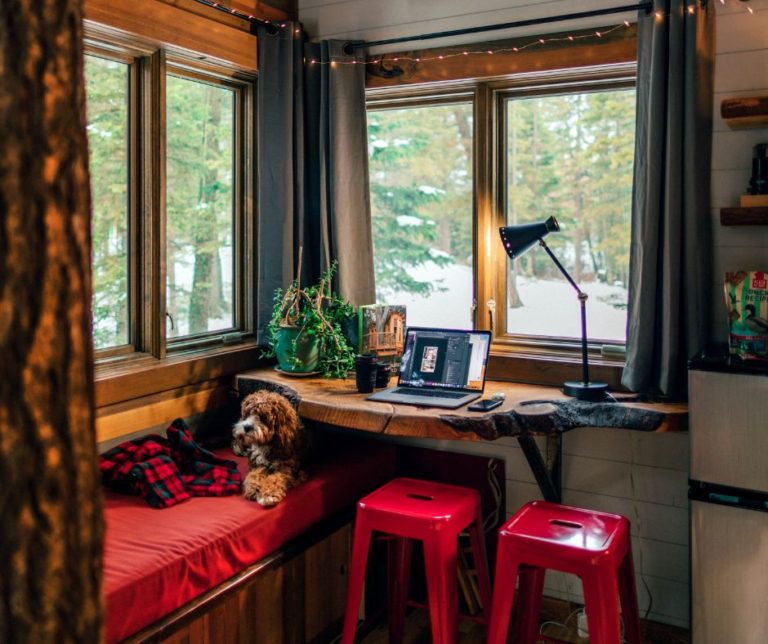The world of Airbnb hosting has seen a significant surge in popularity in recent years. Travelers increasingly seek a unique, personalized accommodations property owners have found, lucrative opportunities in offering their spaces for short-term rentals. However, Airbnb hosting comes with its own set of challenges. In this guide, we’ll explore these challenges and provide practical solutions for aspiring and current hosts.

Balancing Personal Space and Privacy
As an Airbnb host, maintaining a balance between welcoming guests and preserving your own privacy can be a delicate task. It is important to create a space that is inviting and comfortable for guests while also ensuring your own privacy and comfort. Here are some strategies:
- Set Clear Boundaries: Define which areas of the property are for guest use and which areas are off-limits. This could be designating certain rooms as private or setting rules about shared spaces like the kitchen or living room. For example, you can decide that the kitchen is available for guests to use but your home office is strictly off-limits.
- Communicate House Rules: Make sure your guests are aware of the house rules before they arrive. This includes rules about noise level, guest visitors, and use of shared spaces. Communicating the guests from the start can help prevent misunderstandings and ensure a comfortable stay for both you and the guests. You may also consider sending your guests a welcome message with a reminder of the house rules when they book and again a few days before they arrive.
- Use Locks for Private Areas: If there are areas in your home that you want to keep private consider installing locks. This can provide security and peace of mind. Example, installing a lock on your home office door or on a closet where you keep personal items.

Managing Guest Expectations
Meeting and managing guest expectations is crucial for a positive hosting experience. You might need consider this to ensure your guests expectations are met:
- Provide Detailed Information: When listing your property, you may need to provide details as much as possible. This includes information about the property size, amenities, location and its unique features. The more information provided, the easier the guests to decide if your property is a good fit for their needs. Example, if your property is a comfy cabin in the woods you might consider highlighting features like the view, fireplace and the nearby trails or activities.
- Be Honest About Any Limitations: If there are any potential drawbacks to your property such as a lack of parking or a noisy location, be straightforward . It is better for guests to know about these issues before they book than to be disappointed when they arrive. Example, if your property is located in a busy city, make sure to give them a heads up about the potential for street noise in the listing.
- Communicate Regularly: Stay in regular contact with your guests from the time they book until they check out. It can help you address questions or concerns and ensure they have all the information they need for a smooth stay. Example, sending a message to your guests a few days before they arrive to provide check-in instructions and ask if they have any last-minute questions.

Maintaining Cleanliness and Upkeep
Keeping your property clean and well-maintained is key to providing a pleasant experience to the guests. Here are some tips:
- Hire a Professional Cleaning Service: If you’re hosting frequently or have multiple properties consider hiring a professional cleaning service. The service can ensure that your property is well cleaned and ready for each new guest. Professional cleaning service can also help you maintain a consistent standard of cleanliness across all your properties.
- Create a Cleaning Checklist: A detailed checklist can ensure that nothing is missed during the cleaning process. This can include everything from washing linens to cleaning the bathroom to restocking essential supplies. Example, including tasks like wiping down all surfaces, cleaning the oven, vacuuming the floors, and refrigerator and replacing any used toiletries to your checklist.
- Address Maintenance Issues Promptly: Regularly inspect your property for any maintenance issues such as leaky faucets or broken appliances and addressing them as soon as possible. This can help prevent issues from becoming major problems and ensure your property is in top condition for your guests. Example, scheduling a monthly walk-through of your property to check for any maintenance issues.

Dealing with Difficult Guests
Not all guests may be respectful or easy going. Dealing with these kinds of challenging situations may require professionalism and proactive problem-solving. You might need to need to consider the list below when handling difficult guests:
- Stay Calm and Professional: Even if a guest is being difficult, it’s important to stay calm and professional. Responding to the guests complaints or issues in a polite and respectful manner and trying to find a solution that satisfies both parties. Example, if a guest complains about a noisy neighbour you might offer to speak to the neighbour or provide the guest with earplugs.
- Have Clear Policies in Place: Make sure you have clear policies in place for dealing with issues such as rule violations or property damage. It will help you handle difficult situations more effectively and ensure that guests are held accountable for their actions. Example, you have require a security deposit from guests to cover potential damages.
- Use Airbnb’s Resolution Center: If you’re unable to resolve an issue directly with a guest you can use Airbnb’s Resolution Center to involve Airbnb in the dispute. The support can help mediate the situation and provide assistance if needed.

Managing Bookings and Availability
With the popularity of Airbnb, managing bookings can become a juggling act, especially during peak seasons. Here are some tips to help manage your bookings effectively:
- Use a Booking Management System: There are many software options available that can help you manage your bookings, keep track of your availability and avoid double bookings. These systems can save you time and help you stay organized. For example, a booking management system can automatically update your availability as guests book, preventing double bookings and reducing the amount of time you spend managing your calendar.
- Set Minimum and Maximum Stay Requirements: To avoid gaps in your booking calendar,consider setting minimum and maximum stay requirements. For example, you might require guests to stay for at least two nights, or limit stays to no more than two weeks. This can help ensure a steady stream of bookings and make it easier to manage your availability.
- Keep Your Calendar Up-to-Date: Make sure to update your calendar regularly to reflect your current availability. This can help prevent double bookings and ensure that guests have accurate information when they’re looking to book.

Staying Competitive in the Market
As the Airbnb market continues to grow, hosts face increased competition. Here are some tips to help you stand out among other listings:
- Offer Unique Amenities: Consider offering amenities that set your property apart from others. This could be anything from a hot tub or pool to a game room or home theatre. For example, if you have a property near the beach, you might offer amenities like beach chairs and towels, a barbecue grill or an outdoor shower.
- Highlight Your Property’s Unique Features: If your property has any unique features, such as a stunning view, a prime location or historical significance, be sure to highlight these in your listing. For example, if your property is a historic home with original architectural details make sure to highlight this in your listing and photos.
- Provide Excellent Customer Service: One of the best ways to stand out from the competition is to provide excellent customer service. Respond to inquiries promptly, be friendly and welcoming and go above and beyond to ensure your guests have a great stay. For example, you might provide a welcome basket with local treats, offer to help guests with their luggage or provide personalized recommendations for local attractions or restaurants.

Navigating Local Regulations and Legal Compliance
Understanding and complying with local laws and regulations for short-term rentals is crucial for a successful Airbnb hosting experience. Here’s how you can ensure you’re operating within the legal framework:
- Research Local Laws and Regulations: The laws and regulations for short-term rentals can vary greatly from one location to another. Be sure to research the specific laws in your area to ensure you’re in compliance. For example, some cities require short-term rental hosts to obtain a business license while others have restrictions on the number of days a property can be rented out each year.
- Obtain Necessary Permits and Licenses: Some locations require short-term rental hosts to obtain specific permits or licenses. Make sure you have all the necessary permits and licenses before you start hosting. For example, you might need to apply for a special use permit or pass a safety inspection.
- Pay Applicable Taxes: In many locations, short-term rental income is taxable. Be sure to understand your tax obligations and pay any applicable taxes on your rental income. For example, you might need to collect a local occupancy tax from your guests and remit it to your local tax authority.
Being an Airbnb host can be a rewarding journey offering the chance to meet people from all over the world and provide them with a home away from home. However, it’s not without its challenges, from managing bookings and maintaining your property to ensuring guest satisfaction and navigating local regulations, there’s a lot to juggle.
But imagine if you could enjoy the benefits of Airbnb hosting, while having more time to focus on what you love. This is where a professional touch can make a world of difference. A team like a rental property management with expertise in managing short-term rentals, can handle the intricate details of property management allowing you to enjoy the rewards without the stress.
With a focus on everything from guest communication and property maintenance to booking management and legal compliance, a professional property management team can help ensure your Airbnb venture runs smoothly. This leaves you with more time to focus on other aspects of your life while still reaping the benefits of being an Airbnb host.
If you ever find yourself feeling overwhelmed or simply curious about how to maximize your rental income without the added hassle, it might be worth exploring the services of a professional property management team. They can provide you with the support you need to succeed in your Airbnb hosting journey, while ensuring your guests have exceptional experiences.
Remember, being proactive, maintaining open lines of communication, and continuously improving your hosting skills are key to overcoming challenges and creating memorable experiences for your guests. And sometimes, a little professional help can go a long way in making your Airbnb hosting journey even more rewarding.


